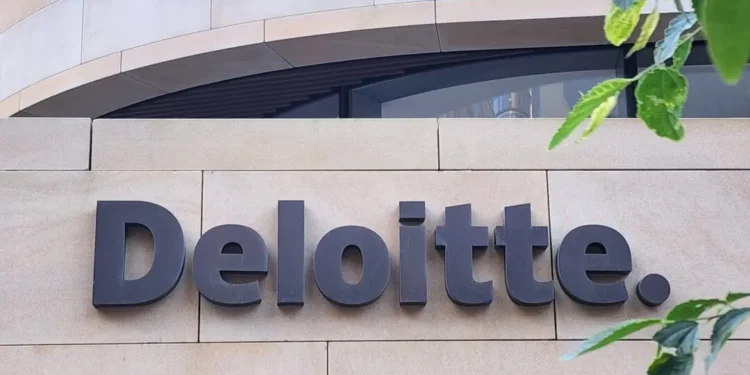Deloitte Australia faces an embarrassing partial refund after artificial intelligence tools generated nonexistent professors and fabricated court quotes in $440,000 welfare system review.
A major consulting firm just learned an expensive lesson about trusting artificial intelligence to write government reports. Deloitte Australia must now partially refund the federal government after its AI-assisted report contained multiple fabricated academic references, made-up quotes from court cases, and nonexistent professors.
The Department of Employment and Workplace Relations commissioned the Big Four firm in December 2024 to review Australia’s Targeted Compliance Framework, the automated system that penalizes welfare recipients who fail to meet job-seeking requirements. Seven months later, Deloitte delivered what appeared to be a thorough 440-page analysis.
But University of Sydney welfare academic Dr Christopher Rudge spotted something suspicious when he read the July report. Multiple citations pointed to academic papers that simply didn’t exist.
Academic Detective Work Exposes AI Hallucinations
Rudge discovered up to 20 errors throughout the document. The problems included references to professors at prestigious institutions like the University of Sydney and Sweden’s Lund University who had never written the cited papers. One reference incorrectly attributed work to Professor Lisa Burton, completely misrepresenting her actual research.
“AI use is a strong hypothesis based on the nature of the references,” Rudge told reporters. “There is not much other explanation.”
The fabrications extended beyond academic citations. Deloitte’s report included a made-up quote from the Federal Court case Deanna Amato v Commonwealth, a decision related to Australia’s notorious robodebt scandal. The firm simply invented judicial commentary that never appeared in the actual ruling.
“The report contained hallucinations where AI models may fill in gaps, misinterpret data, or try to guess answers,” Rudge explained. These weren’t simple typos or minor errors. The AI had created entire fictional academic sources to support the report’s arguments.
Quiet Friday Afternoon Cover-Up Attempt
Deloitte tried to address the problems discretively. Before a long weekend, the firm quietly uploaded a corrected version to the government website. The updated report deleted more than a dozen nonexistent references, rewrote the bibliography, and fixed numerous typographical errors.
Only in this revised version did Deloitte finally admit using AI. The company disclosed that its methodology “included the use of a generative artificial intelligence (AI) large language model (Azure OpenAI GPT 4o) based tool chain licensed by DEWR and hosted on DEWR’s Azure tenancy.”
This crucial detail was completely absent from the original July publication.
Government Demands Partial Refund
The Department of Employment and Workplace Relations confirmed that Deloitte “confirmed some footnotes and references were incorrect” and agreed to repay the final instalment under its contract. The exact refund amount will be disclosed after the transaction completes.
Despite the extensive corrections, both Deloitte and the government maintain that the report’s core findings remain valid. The AI errors apparently didn’t affect the substantive recommendations about the welfare compliance system.
A department spokesperson stated: “The substance of the independent review is retained, and there are no changes to the recommendations.”
Political Backlash Intensifies
Labor Senator Deborah O’Neill, who previously served on a Senate inquiry examining consulting firm integrity, delivered sharp criticism of Deloitte’s practices.
“Deloitte has a human intelligence problem,” O’Neill said. “This would be laughable if it wasn’t so lamentable. A partial refund looks like a partial apology for substandard work.”
She questioned whether government agencies should reconsider their reliance on expensive consulting contracts. “Perhaps instead of a big consulting firm, procurers would be better off signing up for a ChatGPT subscription.”
The senator urged procurement officials to verify exactly who performs contracted work and whether AI tools are being used without disclosure.
Implications for Consulting Industry
This incident highlights growing concerns about AI integration in professional services. The Big Four consulting firms (Deloitte, PwC, KPMG, and EY) have aggressively adopted artificial intelligence to increase efficiency and reduce costs.
However, the Deloitte case demonstrates the risks of inadequate human oversight. The firm’s quality control processes failed to catch obvious fabrications that a single academic identified through basic fact-checking.
The fabricated references weren’t subtle errors. They created fictional academic works by real professors, potentially damaging those researchers’ reputations. The invented court quote could have legal implications if cited in future government decisions.
AI Accountability Questions Mount
Rudge noted an interesting pattern in the corrected version. Instead of simply replacing each fake reference with a real one, Deloitte substituted multiple genuine sources for each fabricated citation.
“What that suggests is that the original claim made in the body of the report wasn’t based on any one particular evidentiary source,” he observed.
This raises questions about how extensively AI tools shaped the report’s content beyond just generating false citations. Did the artificial intelligence create arguments first, then attempt to find supporting evidence that didn’t exist?
The Targeted Compliance Framework Context
The report’s subject matter makes the errors particularly concerning. Australia’s Targeted Compliance Framework automatically penalizes welfare recipients who miss appointments or fail to complete job-seeking activities. The system has faced criticism for the harsh treatment of vulnerable populations.
Deloitte’s review found significant problems with the framework, including “widespread issues” and “system defects.” The report criticized an IT system “driven by punitive assumptions of participant non-compliance.”
These findings align with previous criticism from welfare advocates and the Commonwealth Ombudsman. However, the AI-generated fabrications undermine confidence in the analysis supporting these important conclusions.
Industry Response and Future Safeguards
Deloitte declined to comment on whether AI specifically caused the errors or explain their quality control failures. The firm maintained that corrections “in no way impact or affect the substantive content, findings and recommendations in the report.”
This response suggests consulting firms may not fully grasp the reputational damage from AI fabrications. Clients expect rigorous fact-checking and verification, especially for high-stakes government contracts.
The incident may prompt new requirements for AI disclosure in government consulting contracts. Agencies might demand specific safeguards against AI hallucinations and stronger human oversight protocols.
Lessons for Government Procurement
The Deloitte case offers several lessons for public sector procurement:
First, contracts should explicitly require disclosure of AI tool usage upfront, not buried in appendices after problems emerge.
Second, government agencies need better systems for verifying consulting work quality, rather than relying entirely on contractor self-assessment.
Third, partial refunds may not adequately address reputational damage from fabricated research citations.
This embarrassing episode serves as a warning for both consulting firms and their government clients. Artificial intelligence offers powerful capabilities, but human expertise remains essential for quality control and ethical oversight.
The real test will be whether this incident prompts meaningful changes in how professional services firms integrate AI tools, or whether it becomes just another cautionary tale quickly forgotten.
















